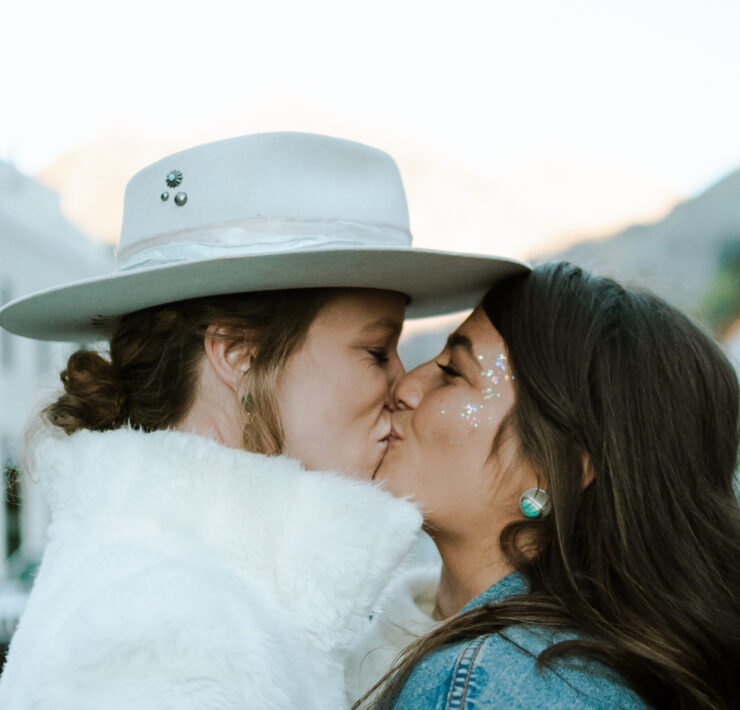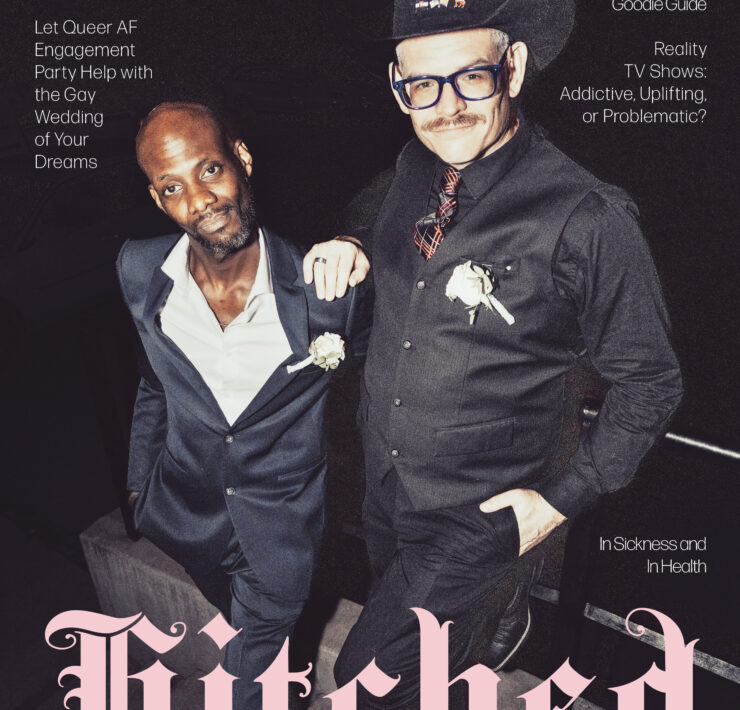Colorado leaders move on same-sex marriage — even before civil unions begin

With only a few hours between the past and the future of relationship recognition for Colorado’s same-sex couples, leaders of the state’s LGBT and allied community seized the present and made their strongest and most public case for marriage equality.
Surrounded by hundreds of current and potential donors, and reporters from the largest media market in the Rocky Mountains, politicians and activists clearly stated their work isn’t over.
“Marriage is our mandate,” Denver Mayor Michael Hancock said in front of a sold-out fundraiser for One Colorado, the state’s largest LGBT advocacy organization.
“The Civil Soiree” event — part victory-lap, part pep-rally — was held at the McNichols Event Center in Denver’s Civic Center Park, a brisk minute’s walk from the Wellington Webb Municipal Building where dozens of couples began lining up as early as 2 p.m. to become the first Coloradans to enter into a civil union.
Civil unions, which grant most of the rights and responsibilities of marriage to any two unmarried adults regardless of gender, became legal at midnight May 1. The county clerk’s offices in Denver and Boulder opened at midnight to begin issuing licenses.
The new statewide relationship recognition became law after Gov. John Hickenlooper signed the bill into law in March. The Colorado Civil Union Act was approved by both Democratic-controlled chambers of the Colorado General Assembly earlier this year.
Versions of the same bill died in previous sessions at the statehouse.
The rallying cry for marriage by activists at the event made good on the fears of opponents to civil unions: they aren’t enough.
Throughout three years of debate, Colorado’s most conservative lawmakers spoke out against the bill, sponsored by openly gay Denver Democrats Pat Steadman and Mark Ferrandino, forewarning gay and lesbian couples won’t stop until same-sex marriage is actualized here.
But, one of the Republican lawmakers responsible for the bill’s first death is now a member of the chorus championing for same-sex marriage.
“This is a constitutional issue for me. It’s a case for the 14th Amendment,” said former state Rep. B.J. Nikkel. “I think it will happen.”
Nikkel became the darling of gay and lesbian activists in 2012 after she reversed her 2011 vote against the bill. Her affirmative vote breathed new life into the second version of the bill which made it through two other Republican controlled committees only to be denied a floor debate by GOP leadership at the time.
Democrats regained control of the House of Representatives in the 2012 election. Nikkel did not run for re-election after her Loveland district was combined with another.
“I wish this would have happened last year so I could have voted for it on the House floor,” she said.
Earlier this year, Nikkel joined a group of Republicans across the nation and signed an amicus brief urging the U.S. Supreme Court to overturn Proposition 8, a voter-approved amendment to California’s Constitution defining marriage between a man and a woman.
A decision on that case is expected in June.
Colorado has a similar amendment. Approved by voters in 2006, Amendment 43 is the 10,000 pound gorilla separating same-sex couples from statewide marriage equality.
Unless the Supreme Court establishes an extraordinary nationwide mandate for same-sex marriage, Colorado voters would most likely need to overturn Amendment 43.
The last three years of political unrest for Colorado’s gay and lesbian families may end up looking like a walk in the park compared to what political opportunities await them.
“This is a victory. But it isn’t an end,” said Hank Provost, chairman of the Colorado Human Right steering committee. “(Tonight) is representative of the bigger journey to create a more equal and respectful community — for all.”
Provost said he’ll encourage members of Colorado’s LGBT community to work with nationwide organizations like HRC and Lambda Legal on moving the state toward marriage.
“We need to learn from their experience,” Provost said.
Last November’s election marked the first time voters in any state approved marriage equality at the ballot. Public relations campaigns and get-out-the-vote efforts coordinated between nationwide organizations in partnership with state organizations similar to One Colorado were part of the successful strategy to win marriage Washington, Maine and Maryland, Provost said.
To be sure, One Colorado’s mission has always been full equality as the organization’s leader Brad Clark reminded civil union critics who dismissed the 21st Century advent as a half-step.
On stage Tuesday, celebrating his third-year anniversary as executive director of One Colorado, Clark smiled and said: “You will see marriage in your lifetime.”
What's Your Reaction?
Out Front contributor Nic Garcia is a lifelong journalist and works for Colorado education policy news organization EdNewsColorado. He was an Out Front managing editor, associate publisher and executive editor from 2011 to 2013.










